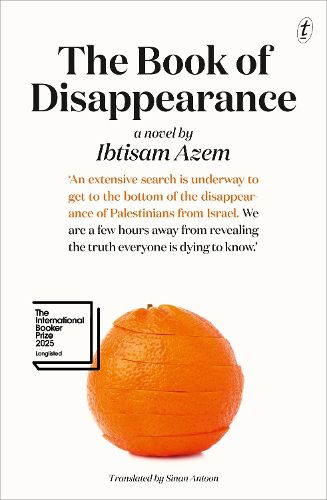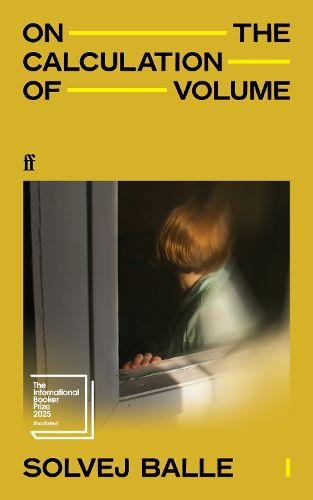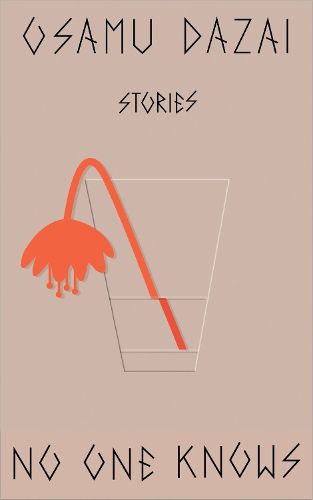This month we're reading fiction translated from: Arabic, Danish, Japanese, French and Italian.
The Book of Disappearance
Ibtisam Azem, translated from Arabic by Sinan Antoon
What if all the Palestinians in Israel simply disappeared one day?
The Book of Disappearance is set in contemporary Tel Aviv. Alaa is a young Palestinian man who is haunted by his grandmother’s memories of being displaced from Jaffa and becoming a refugee in her homeland. His Jewish neighbour and friend, Ariel, is a journalist who believes in Israel’s national myth but is critical of the military occupation of the West Bank and Gaza. He begins to search for clues about why Alaa and the Palestinians have vanished. Their stories, and the stories of the ordinary people of Jaffa and Tel Aviv, reveal the fissures at the heart of the Palestinian question.
Ibtisam Azem’s spare and evocative novel is an unforgettable glimpse into contemporary Palestine as it grapples with both the memory of loss and the loss of memory.
On the Calculation of Volume: Book I
Solvej Balle, translated from Danish by Barbara J. Haveland
Tara Selter has slipped out of time. Every morning, she wakes up to the 18th of November. She no longer expects to wake up to the 19th of November, and she no longer remembers the 17th of November as if it were yesterday.
She comes to know the shape of the day like the back of her hand – the grey morning light in her Paris hotel; the moment a blackbird breaks into song; her husband's surprise at seeing her return home unannounced. But for everyone around her, this day is lived for the first and only time. They do not remember the other 18ths of November, and they do not believe her when she tries to explain.
As Tara approaches her 365th 18th of November, she can't shake the feeling that somewhere underneath the surface of this day, there's a way to escape.
Read our staff review here.
No One Knows: Stories
Osamu Dazai, translated from Japanese by Ralph McCarthy
Osamu Dazai was a master raconteur who plumbed – in an addictive, easy style – the absurd complexities of life in a society whose expectations cannot be met without sacrificing one's individual ideals on the altar of conformity. The gravitational pull of his prose is on full display in these stories.
This collection of 14 tales – a half-dozen of which have never before appeared in English – is based on a Japanese collection of, as Dazai described them, 'soliloquies by female narrators'. No One Knows includes the quietly brilliant long story 'Schoolgirl' and shows the fiction of this 20th-century genius in a fresh light.
Available from 14 April
Voices of the Fallen Heroes: and Other Stories
Yukio Mishima, edited by Stephen Dodd & translated from Japanese by various authors
A writer is seized by apocalyptic visions; a voyeuristic marquis commits a brutal act; and a trio of beatniks dance to modern jazz in the ruins of an abandoned church. Here, stark autobiography contrasts with pure horror, and the tenderness of first love cedes to obsession, heartbreak and deathly beauty. A new selection of Mishima's short stories from the 1960s, Voices of the Fallen Heroes traces the final decade of Mishima's career and offers a unique glimpse into the mind of one of Japan's greatest writers.
In the title story, a seance brings forth the spirits of young officers in the Imperial Army and the kamikaze pilots of the Second World War, who reproach the Emperor and mourn Japan's modern decline. In another, Mishima recounts the true story of the time a deranged fan broke into his home at dawn, insisting on meeting the author and imploring him to 'tell the truth'. Elsewhere, a beautiful youth achieves eternal life through violent murder, and an ill-matched couple seal their fate with a pack of cards, tangled in the web of time and unfulfilled desire.
Available from 15 April
Lies and Sorcery
Elsa Morante, translated from Italian by Jenny McPhee
The first unabridged English translation of the electrifying novel of secrets and delusions, from one of the greatest Italian writers of the twentieth century. First published in 1948, Elsa Morante's debut novel won the Viareggio Prize and earned her the lasting admiration of generations of writers from Italo Calvino and Natalia Ginzburg to Elena Ferrante.
Elisa – orphaned as a child, raised by a 'fallen woman', fed by fairy tales – has lived in an outlandish imaginary world for years. When her guardian dies, she feels compelled to confront her family's tortured and dramatic past, weaving the tale of her mother and grandmother through a history of intrigue, treachery, deception and desire. But as her saga of three generations of Sicilian women proceeds, it becomes something else entirely, taking in a whole legacy of oppression and injustice. By turns flamboyant and intense, raging and funny, Lies and Sorcery is a celebration of the female imagination, and the power of storytelling itself.
The Cat Who Saved the Library
Sosuke Natsukawa, translated from Japanese by Louise Heal Kawai
Thirteen-year-old Nanami Kosaki loves reading. The local library is a home away from home and books have become her best friends. When Nanami notices books disappearing from the library shelves, she’s particularly curious about a suspicious man in a grey suit whose furtive behaviour doesn’t feel right. Should she follow him to see what he’s up to?
When a talking tabby cat called Tiger appears to warn her about how dangerous that would be, together they’re brave enough to follow the frightening trail to find out where all the books have gone. Will Nanami and Tiger overcome the challenges of the adventure ahead?
Warm, wonderful and wise, Sosuke Natsukawa's The Cat Who Saved the Library is also a powerful lesson never to underestimate the value of great literature, and a reminder always to think for ourselves, no matter what our charismatic leaders might say.
Set My Heart on Fire
Izumi Suzuki, translated from Japanese by Helen O’Horan
A young woman named Izumi, details her turbulent twenties in thirteen disarmingly candid vignettes, set in the underground bar and club scene of 1970s Tokyo.
Seamlessly delivering ennui alongside snark, and tragedy nose-to-nose with apathy, Set My Heart on Fire is a singular representation of young womanhood, missteps and miscommunication, and music, men and meds. With chapters titled for tracks by The Zombie, The Supremes and The Rolling Stones, as well as songs by underground Japanese bands of the time, the music of the 1960s and 1970s permeates the story.
There are distinct traces of the fraught tenderness in Marguerite Duras' The Lover, and the raw, decadent post-war generational dissolution of Ryu Murakami's Almost Transparent Blue. But Suzuki's novel is carried by her own singular charm and wit, which will be readily recognised and adored by readers of her short stories.
Read our staff review here.









